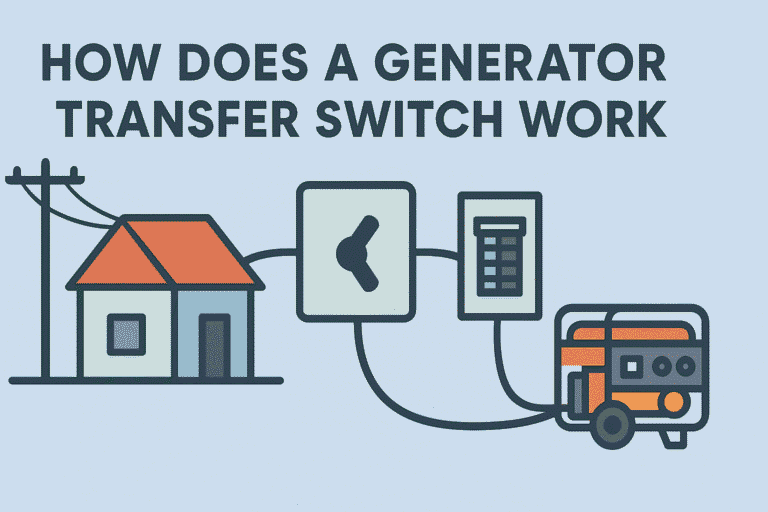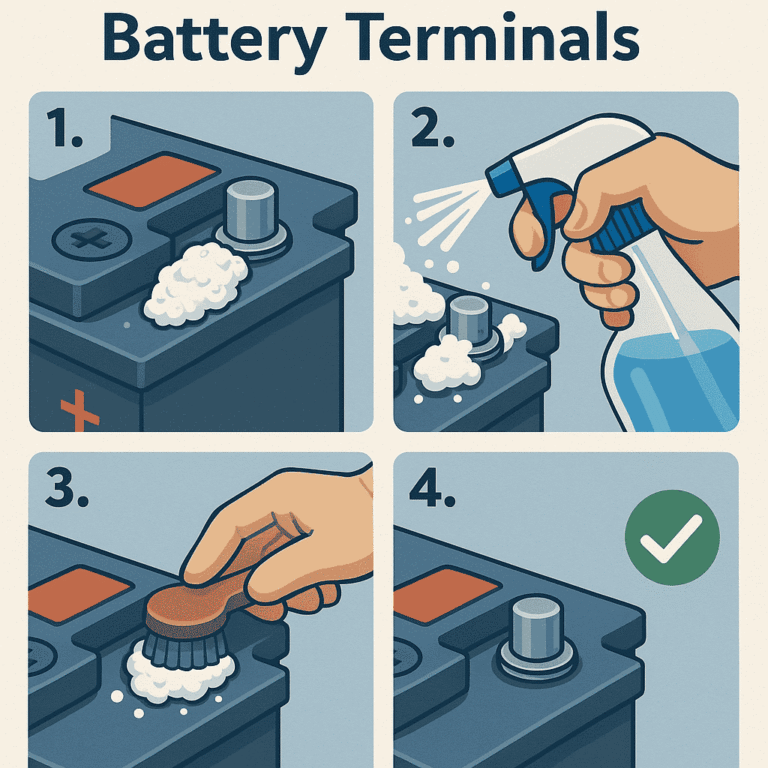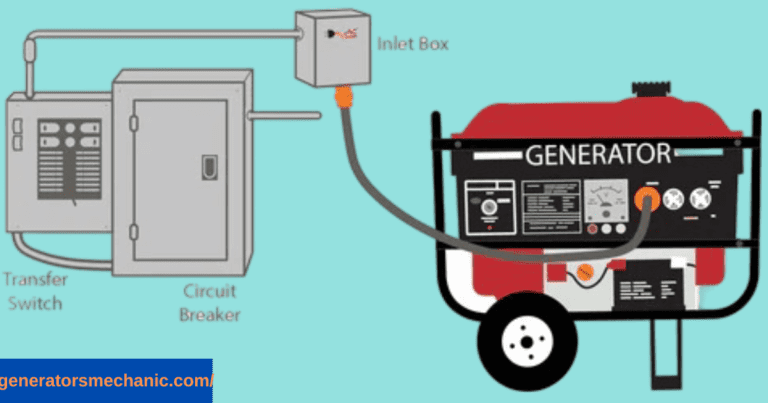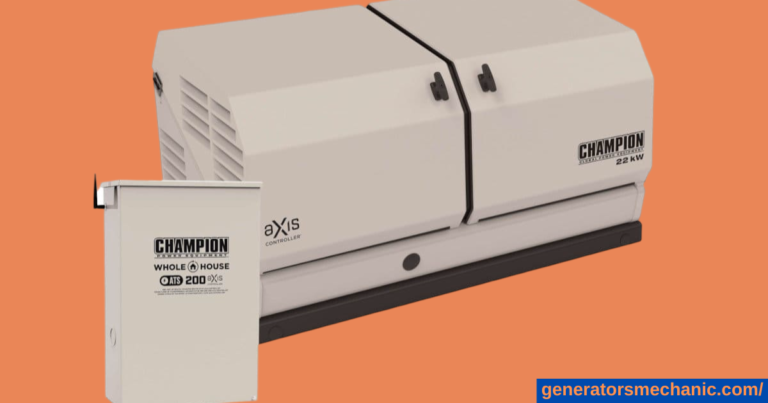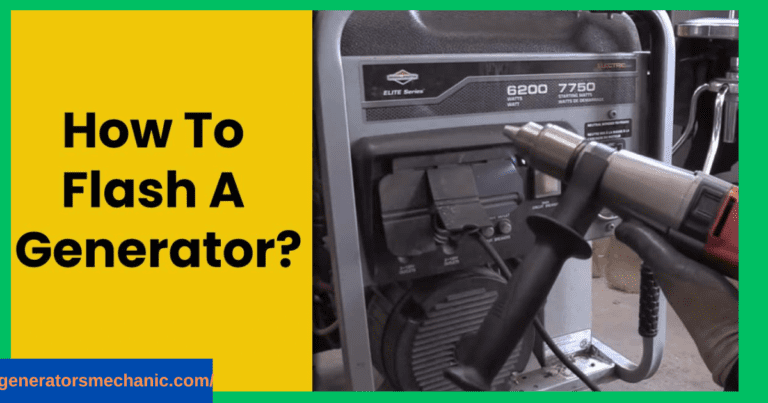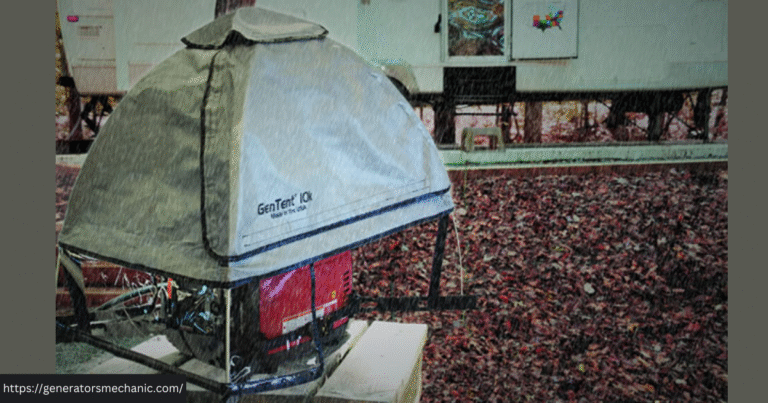Yamaha vs Honda Generators – 7 Powerful Reasons to Choose the Best for Your Needs

When it comes down to keeping the lights on and gadgets running during an outage, both Yamaha and Honda are like those reliable friends who show up with extra snacks at a party. Essential for homes and businesses alike, these generators kick in when power outages play spoilsport. If you’re knee-deep in a profession that relies on power tools or love throwing backyard movie nights, having one of these bad boys can be a game-changer.
it’s about finding that perfect match for your power needs, from small microwaves to big ol’ air conditioners. Let’s dive in and see who lights up our world better.
In-Depth Brand Analysis: Yamaha vs Honda Generators
Both brands have built strong reputations for producing durable machines that deliver consistent power, whether for home backup, camping, or professional use. Yamaha often stands out for its innovative designs and quiet operation, while Honda is known for exceptional fuel efficiency and long-lasting engines.
For those specifically searching for a Yamaha generator for sale, the market offers a variety of models catering to different needs, from lightweight inverter units to heavy-duty portable options. On the other hand, Honda generators tend to carry a slightly higher price tag but justify it with superior build quality and industry-leading performance. Ultimately, choosing between the two comes down to your power requirements, budget, and preference for certain features.

Peeling back the layers, both brands don’t just make generators; they craft lifelines. Honda’s been at it since 1973, churning out units that give us clean power with the finesse of a barista crafting that perfect coffee blend. Their range, stretching from 1000 to over 7000 watts, caters to all, and their eco-throttle and carbon monoxide watchdogs show they care about efficiency and safety.
On the flip side, Yamaha, not wanting to stay in Honda’s shadow, produces generators that give those power needs a solid high-five, featuring models like the yamaha ef2000is that become instant classics. So, what we have here are two heavyweight contenders, duking it out with every watt they generate.
Power Output and Efficiency: Who Takes the Lead?
On the battleground of power output and efficiency, Honda and Yamaha are like two wizards casting spells. Both brands wave their wands with the Honda EU2200i and Yamaha EF2200is, conjuring up 2200 surge watts of power, which is no small feat.
But when it comes down to running watts, it’s a nail-biter with Yamaha squeezing out a slight lead. Peek under the hood, though, and you’ll find both brands flexing their muscles with inverter generators that whisper quietly and efficiently, making it tough to declare a clear winner.
Sound Levels: Determining the Quieter Option
If generators were musicians, Honda and Yamaha would be playing smooth jazz, soft enough to not drown out conversations. The Honda EU2200i tiptoes around with a whisper-soft 48dB, making it the library of inverter generators.
Yamaha, with a bit more presence, hums at 56 to 57dB, but don’t let that fool you. They’ve been fine-tuning their repertoire, bringing in noise-blocking tech to hush things down. Yet, in the realm of keeping things on the down-low, Honda holds a slight advantage.
Durability and Maintenance: Ease of Use Comparison
Generators, by nature, are built tough. They’ve gotta be, to keep humming through hurricanes and heavy lifting on job sites. Honda plants its flag deep into reliability territory, crafting units that laugh in the face of wear and tear.
They’re like that friend who’s always got your back, thanks in part to features like eco-throttle and carbon monoxide protection. Yamaha’s not far behind, with its own arsenal of sturdy, reliable generators, designed to weather the storm. In the longevity league, it’s a head-to-head that’s tough to call.
Warranty and Customer Support: Safeguarding Your Investment
Imagine this: a world where your generator is more than just a machine—it’s a trusty sidekick.
That’s the peace of mind Yamaha and Honda aim to deliver, with warranties that promise to have you covered, come rain or shine. It’s like having an insurance policy on your power supply, ensuring that even if something goes awry, you won’t be left in the dark. When it comes to backup, both brands stand firmly, with customer service that lights the way through any trouble.
Comparing Popular Models: Yamaha EF2200is vs Honda EU2200i
The Yamaha EF2200is is known for its lightweight design, fuel efficiency, and quiet performance, making it ideal for camping and tailgating. On the other hand, the Honda inverter generator EU2200i has built a reputation for rock-solid reliability, smooth operation, and clean power output that’s safe for sensitive electronics.
While both deliver outstanding performance, Yamaha focuses on slightly longer runtimes and user-friendly controls, whereas Honda is celebrated for its durability and consistent power delivery in any condition. Ultimately, the right choice depends on whether you value extended runtime or long-term dependability more.

Diving into the nitty-gritty, the Yamaha EF2200is and Honda EU2200i are like two prizefighters gearing up for the bout. Both pack a punch with 2200 peak watts, but when you peel back the layers, it’s the nuances that set them apart.
Yamaha brings a compact powerhouse to the table, while Honda flaunts its legacy of reliability. It’s a clash of titans, with each model showcasing what it means to be at the top of the generator game.
Performance Under Scrutiny: EF2200is vs EU2200i
When the gloves come off, performance is where the rubber meets the road. Both the Yamaha EF2200is and Honda EU2200i flex their muscles proudly, showcasing fuel efficiency that’s like squeezing every last drop of juice out of a lemon.
With eco mode as their secret weapon, they stretch every gallon of fuel to ensure your lights stay on longer. It’s a duel where efficiency takes the spotlight, and honestly, picking a side feels a lot like trying to choose your favorite ice cream flavor—both are pretty sweet.
Power and Runtime: A Close Match
Now, talking power output, it’s like comparing two heavyweights in their prime. Both machines pump out the juice like pros, keeping your gadgets running without breaking a sweat. But, when it comes down to runtime, they’re so closely matched it’s like they’re finishing each other’s sentences.
This nail-biter of a match-up only proves that when you’re choosing between Yamaha and Honda, it’s less about who wins and more about which one suits your electric tattoos better.
Portability and Usability: Which Is More User-Friendly?
In the ring of portability and usability, think of these generators as two backpacks. One fits just right, while the other might have a few extra zippers you never knew you needed.
Honda and Yamaha both design their units with the user in mind, making them as approachable as a friendly neighbor. Easy to lug around and simpler to operate than your TV remote, they make sure that when the power goes out, you won’t be left fumbling in the dark.
Yamaha EF3000iSEB and Honda EU3000iS: A Higher Power Category Showdown
When it comes to portable power in the 3000-watt range, The Yamaha EF3000iSEB offers an impressive combination of extended run time and boost technology for extra surge power, making it ideal for starting heavy appliances. On the other hand, the Honda EU3000iS stands out for its legendary reliability, ultra-quiet performance, and fuel efficiency that keeps it running smoothly for hours.
Interestingly, Yamaha also shines in its smaller models, such as the Yamaha EF2200iS, which delivers exceptional performance in a compact frame—perfect for camping or light backup power. Whether you prioritize surge capacity or whisper-quiet operation, both Yamaha and Honda deliver quality that justifies their reputation, making the choice ultimately a matter of personal preference and power needs.

Stepping up the game, Yamaha and Honda bring out the big guns with the EF3000iSEB and EU3000iS, respectively. It’s like watching two chefs whipping up gourmet dishes with equally fresh ingredients but different recipes.
With both capable of cranking out 3000 watts—enough juice to power a small village—picking a victor isn’t easy. Each boasts features like eco mode and whisper-quiet operation, proving that in the generator world, bigger can indeed be better, and quieter.
Enhanced Power Capabilities: Meeting Higher Demand
When the demand skyrockets, both Yamaha and Honda rise to the occasion. These powerhouses bring their A-game, serving up enough wattage to keep everything from your fridge to your fancy toaster up and running. It’s like having a superhero in your garage, ready to save the day whether it’s a big bash or a blackout. Enhanced power capabilities mean you’re less likely to get caught with your power pants down during the next big storm.
Noise and Fuel Efficiency: Balancing Performance with Quiet Operation
In a tale of two giants, fuel efficiency and quiet operation become the unsung heroes. Yamaha and Honda both understand the assignment, blending performance with stealth mode operation. It’s like having a ninja running your gadgets—powerful, yet hardly noticeable. This balance ensures that while your life stays powered, peace and quiet aren’t casualties. After all, who says you can’t have your cake and eat it in silence?
Essential Factors in Choosing Your Generator
understanding your specific power needs is key. Both brands are known for exceptional reliability, fuel efficiency, and quiet operation, but their strengths may suit different types of users. Honda often leads in long-term durability, while Yamaha models are praised for their innovative features and competitive pricing.
Reading detailed Yamaha generator reviews can give you a clearer idea of how they perform in real-world situations—whether for camping, home backup, or job sites. Factors like wattage capacity, runtime, noise level, and portability should guide your choice, ensuring you get a generator that perfectly matches your lifestyle and usage demands.

Going beyond just picking sides in the Yamaha vs Honda showdown, it’s about knowing what you need. Like choosing the right tool for a job, picking a generator is about matching muscle to mission. Inverter generators come into play here, stabilizing power like a pro, ensuring your sensitive electronics don’t throw a fit. So, when deciding between these two powerhouses, remember, it’s not just about the label; it’s about what ticks your boxes, from power needs to peace of mind.
Understanding Wattage Needs: Matching Generator to Demand
Imagine you’re at an all-you-can-eat buffet, but for electricity. Knowing your appetite—or in this case, wattage needs—is key. Generators from both Yamaha and Honda serve up a range of options, ensuring there’s something for every craving, whether it’s keeping the lights dimmed or running a small circus. Clean power options mean even your most sensitive appliances can join the party worry-free. So, before you belly up to the power buffet, make sure you know just how hungry you really are.
The Price Factor: Investing Wisely in Power
When it comes to spending your hard-earned dough on a generator, nobody wants to throw their money into the wind. It’s like making sure you get the most bang for your buck, especially with how prices go these days. Yamaha and Honda, they’re like the heavyweights in the generator ring, both packing a punch with their power outputs and efficiency.
But, here’s the thing, sticker shock can be real. You’ve got to weigh that price against what you’re getting. It’s not just about the upfront cost either; consider the long run – maintenance, fuel efficiency, the whole shebang. Think of it as not just buying a generator, but investing in a bit of peace of mind for when the lights go out. Wise investing, they call it.
Tank Size and Running Time: Ensuring Adequate Supply
Talking fuel tanks here, size matters. Nobody wants to be topping off their generator every few hours like pouring another round of drinks at a never-ending party. Bigger tanks mean less hassle, more time keeping the lights on or the AC humming. And, let’s not forget about those backup power options. Toss in propane or natural gas into the mix, and you’ve got yourself a party that doesn’t stop just because the grid does.
It’s all about keeping that supply going strong without constantly running to the fuel station like there’s no tomorrow.
Beyond the Basics: Secondary Considerations
Factors like noise levels, maintenance ease, fuel efficiency, and portability can greatly influence which model suits your needs best. Both brands have earned a reputation for reliability, but they cater to slightly different preferences—Honda often focuses on ultra-quiet performance, while Yamaha tends to balance quiet operation with innovative control features.
Another point worth noting is the technology used in a Yamaha inverter generator, which provides clean and stable power ideal for sensitive electronics. This makes it a great choice for campers, RV travelers, and anyone who values energy efficiency with minimal noise. By weighing these secondary considerations alongside core specifications, you can choose a generator that truly matches your lifestyle and usage demands.

Alright, so you’ve got the big-ticket items checked off. But wait, there’s more. When you’re looking to bring a generator into your life, it’s not just about how chunky it is or how loudly it purrs.
There’s a whole list of other things to think about. It’s like choosing a new member of the family – you’ve gotta dig deeper beyond the basic specs. These aren’t just nice-to-haves, they’re the make-or-break details that ensure you’re not just throwing your money at something that’ll collect dust in the garage.
Size, Weight, and Portability: The Mobility Aspect
Let’s talk turkey about size, weight, and the sneakily important bit – portability. If you’re crammed for space or planning to lug this beast around for camping or boating adventures, you’re gonna want something that won’t give you a hernia. Think about it; are you going to be the person that’s always stuck moving the heavy stuff, or are you picking a generator that moves with the ease of a cat? Keep it lean and mean, and your back will thank you later.
Clean Power and Safety Features: Protecting Your Devices and Yourself
We’re living in the age of gadgets and gizmos aplenty, and clean power is the name of the game to keep them running smoothly. Nobody wants to fry their laptop or, heaven forbid, set the place on fire because their generator was more Wild West than modern marvel. Yamaha and Honda.
They’re like the sheriff and deputy of safe power town. Their generators churn out power as smooth as butter, ensuring your outdoor activities don’t end with a bang – the wrong kind. And with safety features that could rival a spy movie, you can rest easy knowing you, your devices, and everyone around you are in good hands.
Environmental Impact: Emissions and Eco-friendliness
Now, let’s get real – generators aren’t exactly daisies and roses for Mother Nature. But, we’ve got responsibilities, like keeping the planet spinning without coughing on fumes. Yamaha and Honda, they’re like the green thumbs of the generator world. Complying with EPA and CARB? Check.
It’s about doing the legwork to minimize our footprint and still keep the lights on. Choosing one of these guys means you’re thinking about the air we breathe and the world we’ll leave behind. It’s a small step, but hey, every bit helps when it comes to being friendlier to our big blue marble.
Practical Applications and Accessories
but each shines in different scenarios. Yamaha models are often praised for their lightweight design and fuel efficiency, making them perfect for camping trips, tailgating, and small outdoor events. Yamaha generators also offer clean power suitable for sensitive electronics, which is ideal for RV owners and remote workers who rely on laptops or communication devices.
On the other hand, Honda generators are known for their ultra-quiet operation and robust build quality, making them a great choice for home backup or professional job sites. Both brands offer a range of accessories such as parallel kits, covers, and transfer switches, which expand their versatility. Whether you need portable power for recreation or a dependable backup for emergencies, the right choice often comes down to your specific power needs and operating environment.

Generators, they’re not just there to look pretty next to your toolbox. We’re talking powering up your life, from the essentials to the comforts. Whether it’s keeping your fridge running to save the week’s groceries, or making sure your caravan air conditioning doesn’t leave you sweating through the summer nights, it’s all game.
And then there’s the accessories. Oh, boy, the accessories! From cords and covers to adapters that make life easier, it’s like dressing up your generator for every occasion.
Running a 3 Way Fridge: Powering Your Caravan Essentials
When you’re out living the RV life, a fridge is more than just a cool box; it’s the heart of your kitchen on wheels. Making sure it’s powered without draining your resources is where a trusty generator steps in. It’s about keeping your eats fresh and your drinks chilled as you roam free.
Guide to Caravan Toilets: Maintaining Sanitation Off-Grid
Okay, no one likes to talk about it, but staying sane while maintaining sanitation off-grid is crucial. A caravan toilet isn’t just a throne; it’s your best friend when you’re miles from the nearest rest stop. It’s about making sure you’re prepared for the call of nature without causing a natural disaster.
Utilizing a Generator for Caravan Air Conditioning: Staying Cool Efficiently
Summers can turn your caravan into an oven. That’s where a mighty generator comes in, fueling your air conditioning without gulping down energy like there’s no tomorrow. It’s all about staying cool, calm, and collected, while the sun blazes away outside.
Concluding the Generator Debate: Your Path to Power
At the end of the day, it’s not just about choosing a generator; it’s about choosing a partner in power. Yamaha and Honda, they’ve both got their gloves up, ready to duke it out for your attention with their reliability, efficiency, and whisper-quiet operation. They bring clean power, security, and a bit of eco-consciousness to the table. So, when you’re making that bid for energy independence, weigh your options, consider the perks, and you’ll find yourself on a path lit brighter than ever before.
Final Thoughts: Weighing Yamaha vs Honda for Your Next Generator Purchase
After all is said and done, picking between Yamaha and Honda is like trying to choose your favorite ice cream flavor – they both taste darn good, but it comes down to what tickles your fancy. Yamaha’s got that sleek design and the whisper of innovation, while Honda packs a punch with reliability and a track record as comforting as grandma’s cooking.
It’s about what fits your life, your RV escapades, and your need for power that doesn’t quit. With either choice, you’re setting yourself up for success, making those moments of need a breeze. Your next generator isn’t just a purchase; it’s the ultimate guide to freedom and peace of mind, turning every outdoor venture and rv spring cleaning into a smooth ride.
Our more recommened products:

Predator 9500-Watt Inverter Generator
- 🔌 9500 Peak Watts – Powerful enough for heavy appliances.
- 🔇 Ultra Quiet – Low noise operation for peace and comfort.
- 🕒 18.5 Hours Runtime – Extended backup on one tank.
- ⚡ True Sine Wave Output – Safe for sensitive electronics.
- 🛞 Built-in Wheels – Easy to move despite heavy size.
★ ★ ★ ★ ★ 4.7/5

Champion 100263 Dual Fuel Generator
- 🔹 Dual Fuel – Runs on propane or gasoline for flexible use.
- 🔹 Electric Start – Quick and easy startup with push button.
- 🔹 7500 Starting Watts – Powers home essentials in emergencies.
- 🔹 Touch Control Panel – All controls in one simple interface.
- 🔹 Low Oil Shut-Off – Protects engine automatically.
★ ★ ★ ★ ★ 4.7/5

Firman H08051 Generator
- 🔹 Dual Fuel Technology – Gasoline & propane dono use kar sakte ho
- 🔹 Massive Power Output – 10,000 starting / 8,000 running watts (gasoline)
- 🔹 Remote Start – Wireless start option with included remote
- 🔹 Fuel Gauge – Clear and easy-to-read fuel level indicator
- 🔹 Wheel Kit Included – Easy portability with heavy-duty wheels


